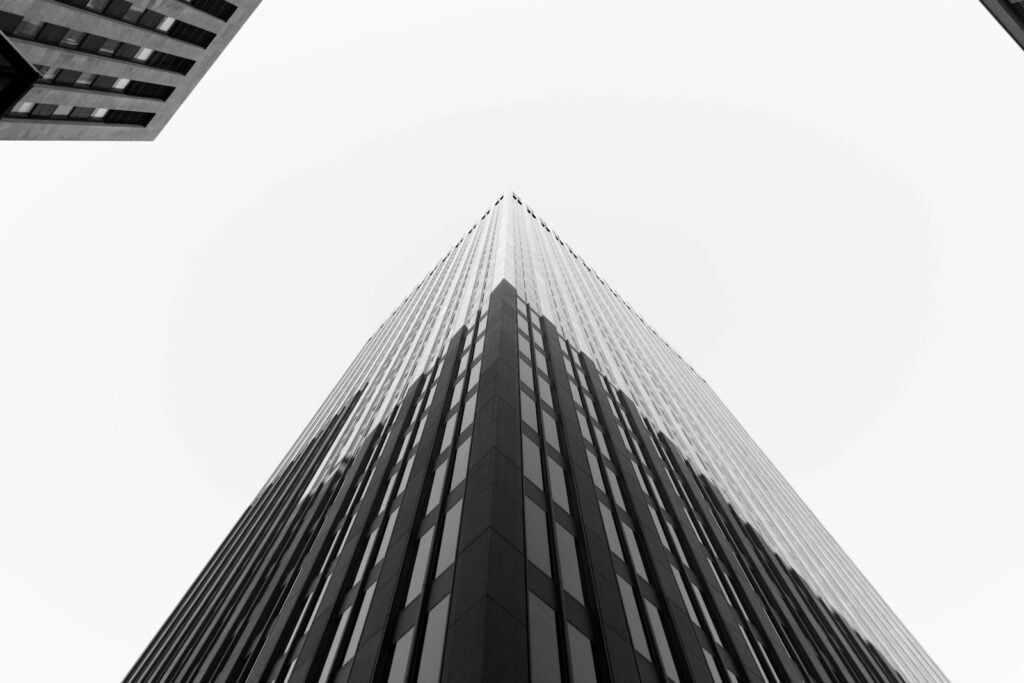Is your company facing a conflict with a major supplier? Is a partner questioning a strategic decision? Are you wondering which court has jurisdiction to settle the dispute? The Commercial Court is often the court to turn to in the business world, but its jurisdiction is precisely defined by law. Choosing the wrong court can mean wasting time and incurring unnecessary costs.
This court is specifically dedicated to commercial matters. Understanding when it has jurisdiction - what legal experts call its "material" jurisdiction or jurisdiction of attribution - is the first essential step in asserting your rights or organising your defence effectively. The aim of this article is to clarify the main areas in which the Commercial Court has jurisdiction, focusing on the most common situations: disputes between professionals, disputes relating to the life of commercial companies, and its irreplaceable role when businesses run into difficulties.
The Commercial Court: justice for business
The Commercial Court occupies a special place in the French judicial landscape. Its main role is to hear disputes arising from economic and commercial activity. One of its unique features is its composition: the judges who sit on the court, known as juges consulaires, are not professional judges but shopkeepers or company directors elected by their peers. The idea behind this composition is to have commercial cases judged by people who are familiar with the realities of the business world.
These courts are not present in every judicial district of France. In areas where there is no dedicated commercial court (particularly in Alsace and Moselle, or in certain less densely populated areas), it is the judicial court (the civil court under ordinary law) that performs this function. It then rules "commercially", applying the rules specific to business law, but according to its own procedures. It is therefore important to check which court has jurisdiction locally.
Disputes between professionals: the heart of jurisdiction
The Commercial Court's main area of intervention is undoubtedly relations between professionals. The law, and more specifically article L. 721-3 of the Commercial Code, gives it jurisdiction over "disputes relating to commitments" between certain categories of economic players.
The key rule: disputes over commitments between traders
The most common situation is a dispute between two traders. But who is considered a "trader" in the eyes of the law? It may be a natural personAn individual, such as a sole trader, who carries on business on a regular basis and makes it their profession (as defined in article L. 121-1 of the French Commercial Code). Think of a shop owner, a trader or a regular service provider acting in his own name. It can also be, and this is the most frequent case, a legal personIn other words, a company. We will see later which companies are covered.
The 'commitments' concerned are very varied. They obviously cover contracts concluded in the course of commercial activity: a contract for the sale of goods between two companies (B2B), a contract for the provision of services, a partnership agreement, a business loan granted by a bank to a company, etc. But the jurisdiction of the Commercial Court extends beyond contracts alone. It also extends to disputes relating to responsibility that may arise between traders in the course of their business. A typical example is an action for unfair competition: if a business believes that a competitor is using unfair practices to harm it (denigration, confusing imitation, etc.), the dispute will be brought before the Commercial Court. Similarly, a disagreement over the performance of a contract, such as a non-conforming delivery or persistent late payment, falls within the jurisdiction of this court.
The case of craftsmen: a skill mainly for difficulties
For a long time, tradespeople were mainly subject to the civil courts for their general disputes. A law passed in 2016 envisaged extending the general jurisdiction of the Commercial Court to disputes involving them (between craftsmen, or between craftsmen and traders), but the necessary implementing legislation has not yet been published to make this general extension effective (April 2025). HoweverIt is essential to note that tradespeople are already subject to the jurisdiction of the Commercial Court in a very specific and important area: business difficulties. As we shall see later, a craftsman experiencing serious financial difficulties is subject to safeguard, reorganisation or compulsory liquidation proceedings before the Commercial Court, in the same way as a trader.
What about the banks?
Credit institutions and finance companies are also explicitly mentioned in the law. Disputes between them, or between them and traders, fall within the jurisdiction of the Commercial Court. This covers a wide range of disputes relating to professional banking and financial transactions.
The life of commercial companies as seen through the eyes of the commercial court
Another major area of the Commercial Court's jurisdiction concerns commercial companies. Article L. 721-3 of the Commercial Code gives it jurisdiction over "disputes relating to commercial companies". This rather broad formula covers a wide range of situations.
Which companies are affected?
The law distinguishes two main categories of commercial company:
- Commercial companies "by form" : These are companies that are considered to be commercial because of their very legal structure, whatever their actual activity. Article L. 210-1 of the French Commercial Code lists these forms: Sociétés en Nom Collectif (SNC), Sociétés en Commandite Simple (SCS), Sociétés à Responsabilité Limitée (SARL, EURL) and Sociétés par Actions (SAS, SASU, SA, SCA). This is a very important point that is often overlooked: a company that has chosen one of these forms (for example, an SAS or a SARL) will be subject to the jurisdiction of the Commercial Court for disputes concerning it, even if its activity is purely civil! This is the case, for example, of a consultancy firm set up as an SAS, a holding company managing holdings in the form of an SAS, or even a société civile immobilière (SCI) that has opted for the form of an SARL. The choice of legal form therefore has consequences for the competent court.
- Commercial companies "by object" : These are companies whose legal form is civil (for example, a Société Civile Immobilière - SCI, a Société Civile de Moyens - SCM), but which the real and usual activity is commercial. If an SCI, for example, not only manages a property portfolio but also repeatedly buys buildings with a view to reselling them in order to make a profit, it is carrying on a commercial activity. Disputes concerning it will then fall within the remit of the commercial court because of its actual commercial purpose.
What are typical disputes?
The jurisdiction of the Commercial Court covers a wide range of disputes arising in the life of a commercial company:
- Conflicts between partners : They are frequent and may relate to the interpretation or breach of a shareholders' agreement, profound disagreements about the company's strategy or management, the distribution of profits, a request for the exclusion of a partner (if the articles of association or an agreement so provide), etc.
- Disputes between the company and one (or more) of its members : A shareholder may, for example, take action against the company to obtain disclosure of certain company documents, to challenge the validity or legality of a decision taken at a general meeting, or to claim compensation for a loss allegedly caused by the company. Conversely, the company may take action against a shareholder, for example to obtain payment of his promised contribution.
- Problems linked to key stages in social life : Disputes can arise as soon as the constitution of the company (e.g. problem of valuing a contribution in kind). During its operationIn addition, disputes may arise over the appointment, dismissal or remuneration of directors. Finally, during the end disputes may arise concerning the dissolution of the company or the liquidation and distribution of assets between shareholders.
- Directors' and officers' liability : An executive (manager of a SARL, chairman of a SAS, director of a SA, etc.) may be held liable before the Commercial Court if he or she commits a management error that is prejudicial to the company itself, to the shareholders (e.g. a decision taken in his or her personal interest to the detriment of the company) or, in some cases, to third parties (e.g. fraudulent manoeuvres that cause prejudice to a creditor).
A central role in business difficulties
The Commercial Court does not only intervene to settle disputes. It also plays an essential, and often preventive, role when companies are experiencing economic or financial difficulties.
Anticipating problems: prevention procedures
Even before a company is in suspension of payments, there are mechanisms in place to try to get things back on track. The ad hoc mandate and the conciliation are confidential procedures, initiated at the request of the company director and conducted under the aegis of the President of the Commercial Court. A trustee or conciliator is appointed to help the company negotiate with its main creditors (banks, suppliers, social security and tax bodies) to find amicable solutions (debt rescheduling, new financing, etc.).
Managing the crisis: insolvency proceedings
When the difficulties are more serious and the company can no longer meet its debts with its available assets (cessation of payments), or is likely to do so in the near future, collective proceedings are initiated. The backup (if the company is not yet in suspension of payments but is experiencing insurmountable difficulties), the legal redress (if it is in suspension of payments but reorganisation is possible) and the compulsory liquidation (if recovery is manifestly impossible) fall almost exclusively within the jurisdiction of the Commercial Court for debtors engaged in a commercial or craft activity. This is therefore the court to which an artisan in difficulty should turn. For companies of significant size (in terms of sales and/or number of employees) or belonging to large groups, there are also specialised commercial courtswith fewer staff but broader geographical remit, have been appointed to deal with these complex cases.
Navigating the intricacies of legal jurisdiction can be complex. If your company is facing a dispute or going through a difficult period, a precise legal analysis is essential. Our firm will be happy to advise you on the appropriate jurisdiction and the best strategy to adopt. We look forward to hearing from you.
Sources
- Commercial Code, in particular articles L. 121-1, L. 210-1, L. 721-3, and Book VI (Business difficulties).
- Code of civil procedure.
- Code of judicial organisation.




